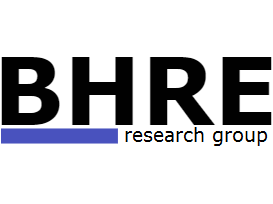NEW: Electronics Watch Principles on Worker-Driven Remedy
/Everyone who suffers harm has a right to an effective remedy. However, workers in global supply chains who suffer business-related human and labour rights abuses often receive no remediation, even when there is evidence of harm. For example, there is often no medical care for workers suffering long-term health impacts from harmful chemicals, no financial compensation for wage theft, no social or psychological support for sexual abuse. Workers may not even get an apology for harm caused. In cases when some form of remedy is provided, it is usually companies that decide what remedy they will provide, and workers are not consulted. Remedy should be provided as a right, based on international human rights law and international labour standards and have workers at its core. The importance of rights-holder involvement in remedy is widely recognised.
These newly updated 10-point Principles define the Electronics Watch approach to worker-driven remedy, setting out the requirements of effective remedy processes and outcomes. Electronics Watch will provide support for public buyer affiliates to implement the principles in their supply chains. The principles are based on the legal research and analysis by Martina Trugnach and Olga Martin-Ortega, and published in “Remedy For Human Rights Violations In Global Supply Chains” which establishes a framework for the remediation process and defines the outcomes of remedy according to international human rights law. Following two consultations with trade unions and civil society organisations in Malaysia in May and November 2022, we distilled the framework into a set of principles of worker-driven remedy. Participants included IndustriALL, the global union, and its affiliates; UNISON, the UK public sector union; Tenaganita, Electronics Watch monitoring partner in Malaysia; Serve the People Association, our monitoring partner in Taiwan; and other Malaysian civil society organisations. In parallel, together with the Danish Institute for Human Rights and BHRE, Electronics Watch organised a two-day training and workshop on access to remedy and remediation for human rights abuses in public procurement. Participants included public buyers and procurement professionals from local, regional, national, and international bodies. Drawing on real labour rights cases and video testimonials from workers and their advocates, participants identified challenges to and opportunities for driving remedy for rights violations in global supply chains through public procurement. The resulting ideas provide a basis for developing a roadmap for change. These included remedy-specific award criteria, a guide for engaging suppliers on remedy, further workshops and trainings for public buyers, and a platform for information sharing on remedy-related best practices, among others.
To raise industry awareness of remedy and why it is needed, Electronics Watch also held an Introduction to Worker-Driven Remedy event following the RBA Annual Conference in October. Highlighting the new Principles, the two-hour session started with a film of worker testimony from Hungary, India, Indonesia, Malaysia, and Vietnam, calling for remedy. Panellists discussed the basis for remedy in international human rights law, the demand for remedy in public procurement, and practical steps companies can take to provide remedy. They explored issues facing migrant workers and what remedy might look like for them, as well as for workers harmed by toxic chemicals used in the electronics industry. They also highlighted how the Swedish Regions are driving respect for workers' rights in global supply chains with a new contract clause requiring remedy, and how this practice could be expanded to more public buyers.




